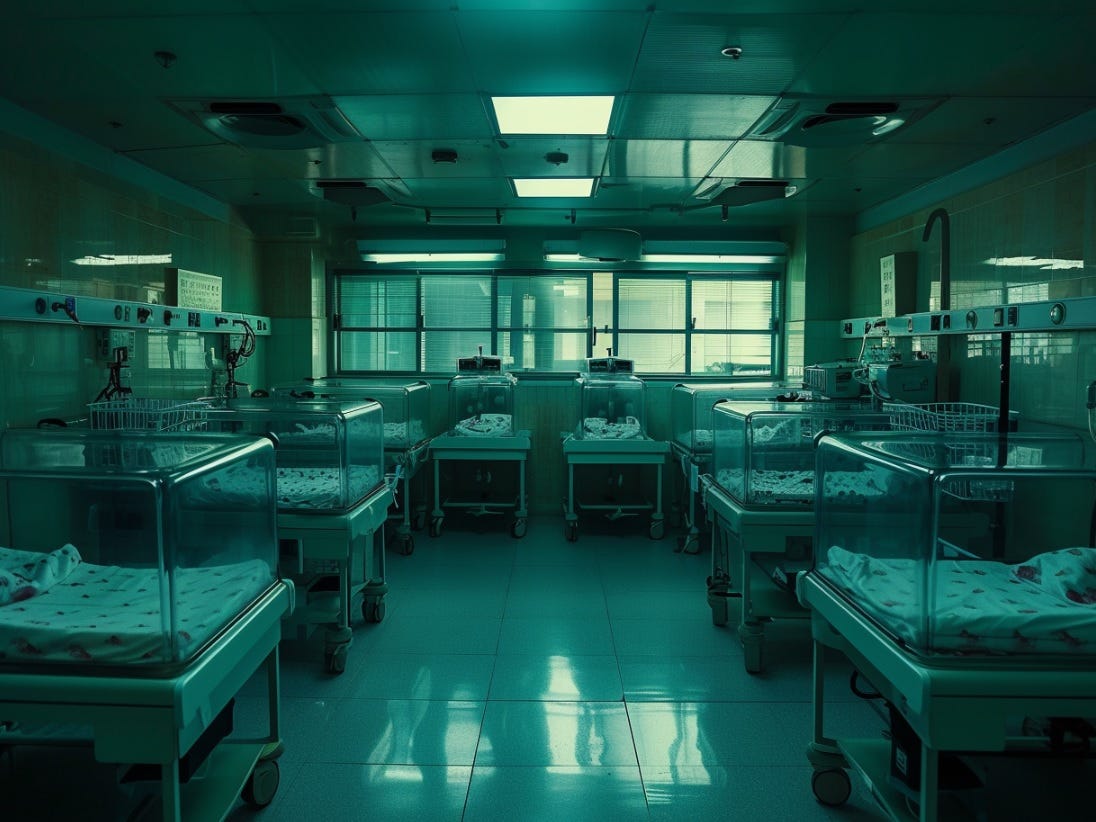🍼 Fewer and Faster: Can we stop the global fertility collapse?
AI might provide a better long-run path than policy tweaks
Quote of the Issue
“As the sound of the playgrounds faded, the despair set in. Very odd what happens in a world without children's voices. I was there at the end” - “Miriam,” Children of Men
The Conservative Futurist: How To Create the Sci-Fi World We Were Promised
“With groundbreaking ideas and sharp analysis, Pethokoukis provides a detailed roadmap to a fantastic future filled with incredible progress and prosperity that is both optimistic and realistic.”
The Essay
🍼 Fewer and Faster: Can we stop the global fertility collapse?
I wasn’t planning on writing my third consecutive piece on demographics and falling fertility, but please stick with me on this.
As you might know, Nordic countries have a reputation as being the best places on Earth to have kids. In a 2023 global survey of 17,000 people, Sweden, Norway, Finland, and Denmark — in that order — ranked highest in attributes such as being family-friendly and having a great public health system. No surprise here. Scandinavia is famous around the world for its generous (and high tax) welfare states.
Let’s take Finland, for example. Having a baby there has been described as being “almost free,” all new moms get a “baby box” (containing 64 items including clothes, care products, and a first reading book), parents get nearly a combined full year of parental leave, and the government provides free universal daycare from eight months until kids start grammar school. Pretty sweet deal.
Taken all together, it’s a wishlist of public policies that one might think would make parenting easier and more affordable — and, even, encourage parents to have more kids than otherwise. And yet Finland’s total fertility rate was 1.32 in 2022, the lowest birth rate since the country started keeping track in 1776. (The total fertility rate was 1.29 for women speaking national languages and 1.51 for foreign-language-speaking women.) Indeed, fertility has fallen by a third since 2010, as is noted in a fascinating new Financial Times interview with Finnish sociologist and demographer Anna Rotkirch, a chat that prompted me to write this piece.
From that FT interview:
Italy’s prime minister, Giorgia Meloni, has said the birth rate is a “top priority”. French President Emmanuel Macron this month promised “demographic rearmament”. But Rotkirch cautions that their efforts are likely to underwhelm. “When you work with politicians, you always see the same things. ‘Oh yes, we should have one month’s more paternity leave!’ All the scholars are like: you should, but it won’t change anything. … The strange thing with fertility is nobody really knows what’s going on. The policy responses are untried because it’s a new situation. It’s not primarily driven by economics or family policies. It’s something cultural, psychological, biological, cognitive.” Her findings suggest that children do not fit into many millennials’ life plans. Once it was a sacrifice not to have children; now starting a family means sacrificing independence. “In most societies, having children was a cornerstone of adulthood. Now it’s something you have if you already have everything else. It becomes the capstone.”
And as my AEI colleague Brad Wilcox tweeted in response to that interview:
What cultural problem are we talking about here, exactly? Something called “workism,” the notion that family formation is undermined by the increasing value and importance that individuals and societies place on having a career and achieving workplace success.
Keep reading with a 7-day free trial
Subscribe to Faster, Please! to keep reading this post and get 7 days of free access to the full post archives.





